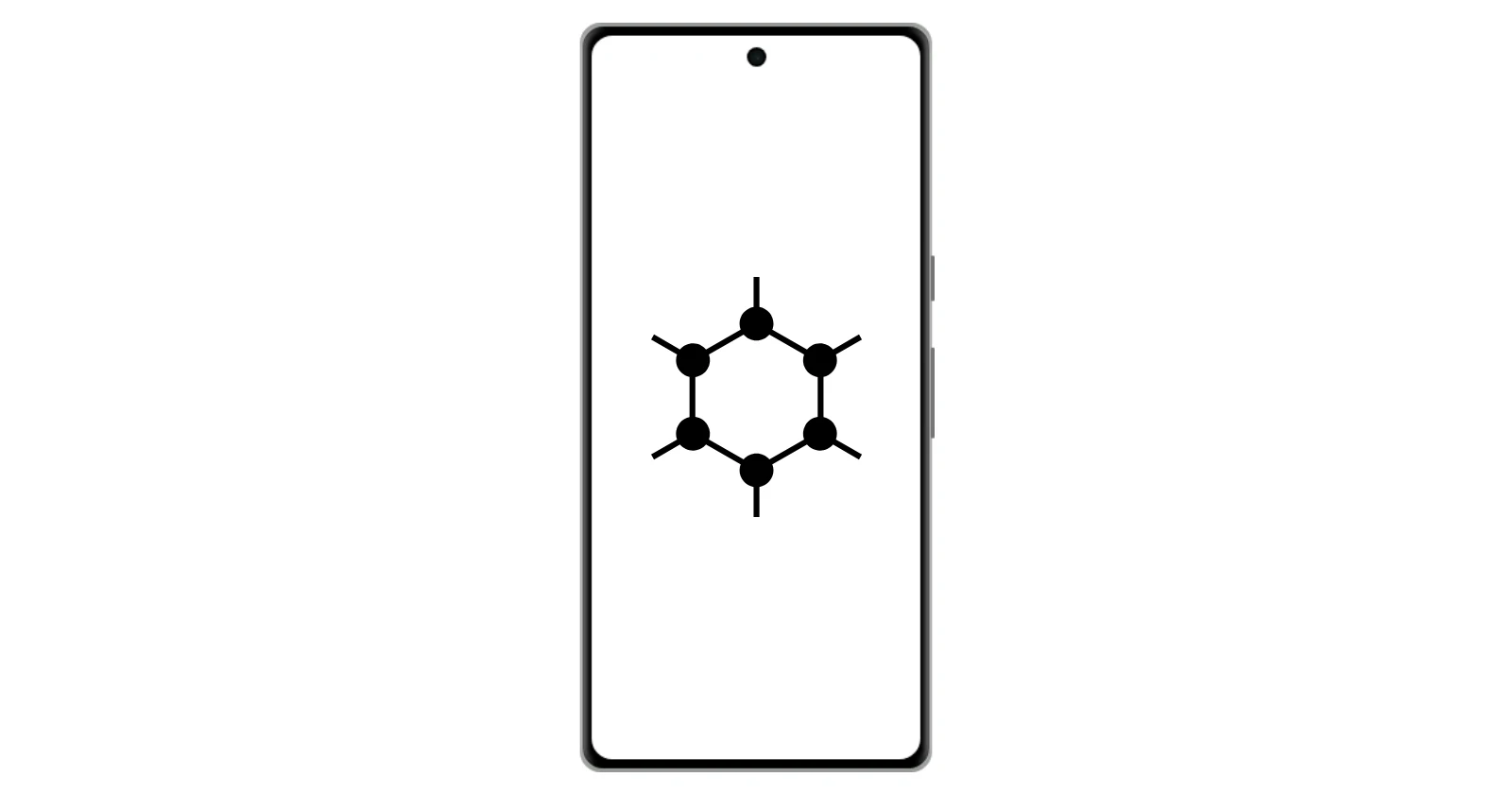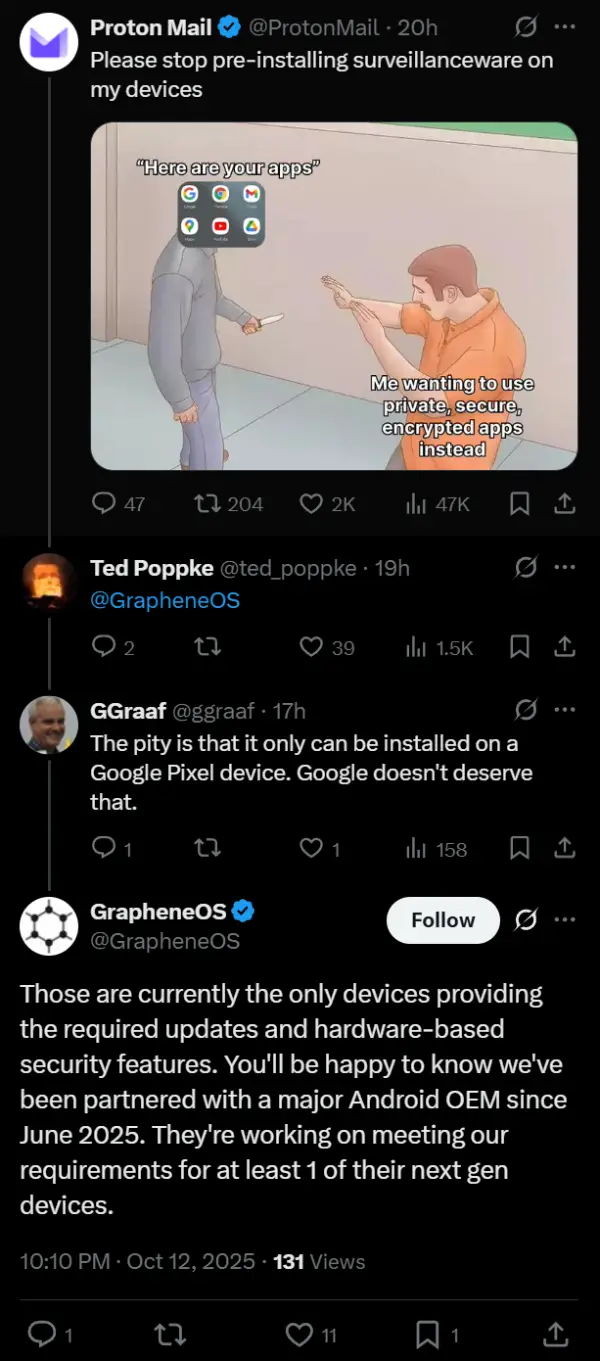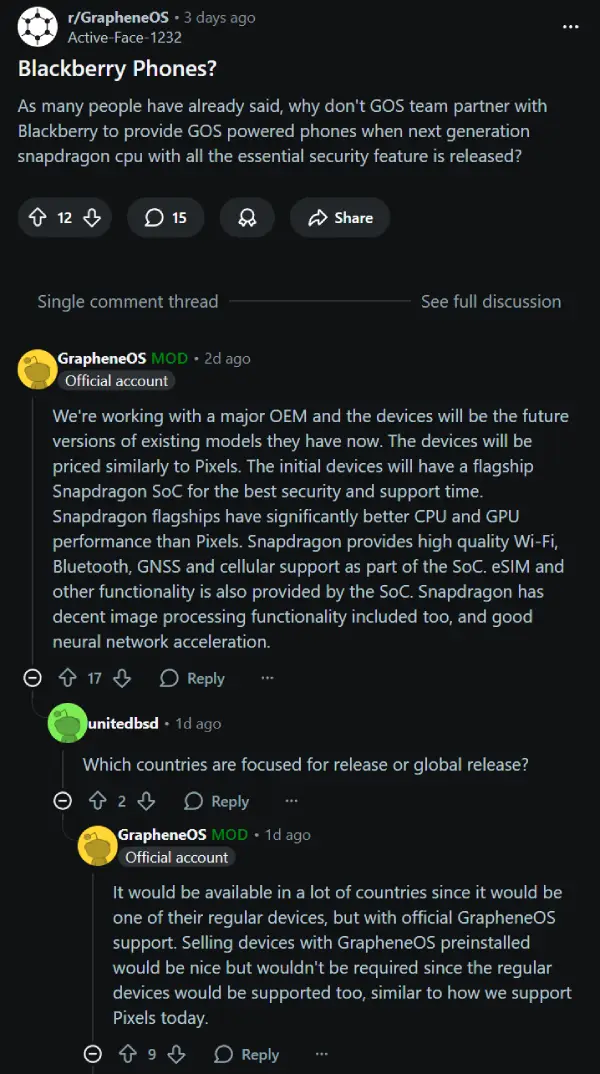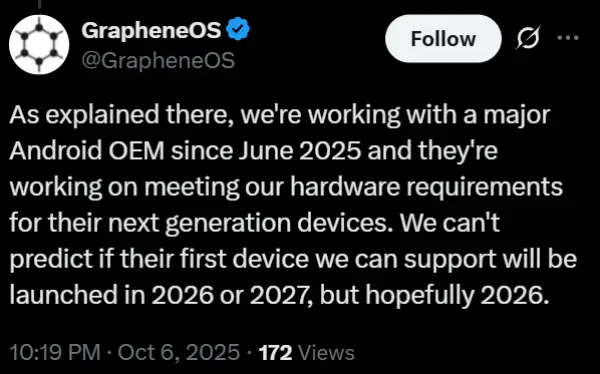GrapheneOS, the privacy-focused Android operating system that has spent years exclusively supporting Google Pixel devices, might finally be breaking free from its Google hardware dependency. The project recently confirmed it has been working with a major Android manufacturer since June 2025, with plans to support at least one of their next-generation devices.
The announcement came through a series of social media responses where GrapheneOS addressed longtime criticism about only working on Pixel phones. When users questioned this limitation, the project clarified that Pixels currently remain the sole devices offering the necessary security updates and hardware-based security features they require. However, that exclusivity window appears to be closing.
According to details shared on Reddit, the partnered manufacturer will offer GrapheneOS support on future versions of their existing models, priced similarly to Pixels. These initial devices will feature flagship Snapdragon processors, which GrapheneOS notes provide significantly better CPU and GPU performance compared to Google’s Tensor chips. The Snapdragon platform also bundles high-quality wireless connectivity, eSIM support, and decent image processing capabilities directly into the system-on-chip.
GrapheneOS has maintained strict hardware requirements that go beyond simple bootloader unlocking, which explains why brands like OnePlus haven’t made the cut despite offering unlockable devices. The project prioritizes security and privacy over broad device compatibility, refusing to compromise these principles for wider hardware support.
The new partnership devices should be available in numerous countries since they’ll be part of the manufacturer’s regular lineup with official GrapheneOS support. While selling phones with GrapheneOS preinstalled would be ideal, the project confirmed it wouldn’t be mandatory since users could install it themselves on supported devices, similar to the current Pixel arrangement.
For existing Pixel users, GrapheneOS plans to maintain support for current devices until their end-of-life dates. The team is working on adding Pixel 10 support, though the timeline remains unclear. Whether they’ll support Pixel 11 and beyond hasn’t been decided yet.
This isn’t surprising given GrapheneOS’s recent criticism of Google’s security patch handling. The project has been vocal about Google extending early patch access to manufacturers from one month to four months, which potentially exposes vulnerabilities to bad actors for longer periods. Having secured early patch access through their OEM partner helps GrapheneOS work around some of these delays.
The partnership represents a turning point for GrapheneOS, potentially opening the door to users who want robust privacy protections without committing to Google hardware. Whether the first supported device launches in 2026 or slips to 2027 remains uncertain, but the groundwork is clearly being laid for GrapheneOS to part ways with Pixel phones.
I, for one, can’t wait to know which “major Android OEM” the team is partnering with to break away from Google Pixel exclusivity. Which Android OEM’s hardware do you think is the best candidate for GrapheneOS privacy-focused software? Share your thoughts in the comments below.




